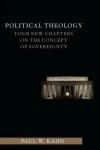
Kahn’s book is intriguing and in many places insightful, conversant in theoretical literature ranging from that of Giorgio Agamben to that of Brian Leiter. I have two worries, one about Kahn’s similarity to Schmitt and another about Kahn’s difference from Schmitt. I worry that the richness of Schmitt’s treatment of theology is diminished in Kahn’s treatment, with theology being reduced to religion – religion that sounds quite liberal and quite Protestant. And I worry that Kahn, like Schmitt, may not provide sufficient space for difference (racial, gender, class, and even religious) in his constructive account. I will approach these worries indirectly, after first rehearsing some of Kahn’s discussion of sovereignty.
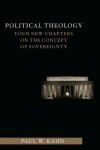
In the October 13 issue of the New York Review of Books, Mark Danner published a critique of the Bush administration’s policy on torture, under the title “Our State of Exception”. He didn’t give Carl Schmitt (or Paul Kahn) credit, but he could have. When the intellectual history of the past generation is written, one of the stranger items will be the unexpected resurrection of a sinister figure who might have seemed buried and forgotten, except for his admirers on the far right wing of respectable discourse.
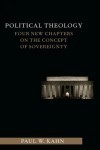
At this moment of extreme political intensity, Paul W. Kahn’s new book, Political Theology, appears as a timely meditation. By means of a sustained engagement with the controversial German legal theorist Carl Schmitt’s text of the same name, Kahn attempts to demonstrate that behind our seemingly liberal, constitutional order is a deep faith in the sacred character the state and of popular sovereignty. One is tempted to read Kahn’s juxtaposition of the discourses of (liberal) political theory and political theology as a commentary on struggle between the Obama Administration and the contemporary Republican (and Tea) Party—the one stressing reason, deliberation, pragmatism, compromise; the other embracing faith, will, power, sacrifice. Kahn, however, is more subtle than that. His slim volume is a provocative, sometimes frustrating, sometimes perplexing read, providing much food for thought, and also, I can imagine, for fights.
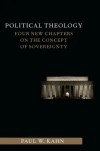
Kahn assumes the United States, as a state, to be a ‘norm’ and does not seem to grapple with anything or anyone external to it: his focus is internal. I would like to suggest that immigrants have been constructed as the quintessential exception – an exception made on the basis of nationalism rather than liberal political theory, though – and that this is generating the kinds of restrictive immigration legislation… Would-be-immigrants are dealt with outside the nation (offshore processing) or hidden within it (detention), preventing their access to legal ‘norms’ available to citizens.

The book began with my conviction that the theology and philosophy of the early modern period is especially important for understanding Christian ethics today. It’s needed for us to figure out “how we got to where we are in our thinking,” as Nick Wolterstorff once put it. It is thus a hinge point on which subsequent church history turns. This is especially the case because it was in this period that there first emerged the plurality of moral languages that we now call pluralism, but which was originally a collection of writers (mostly Christian) casting about for a way to best express questions that had become pressing in their time.
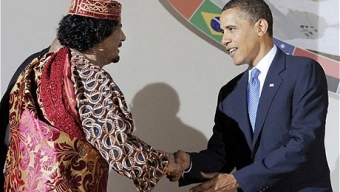
David Cameron’s statement regarding the killing of Moammar al-Gaddafi will go down as another piece of brash hypocrisy, which would be breathtaking if it was not so expected from the British premier. He mentioned that he was “proud of the role that Britain has played” in the uprising – intending of course the support given by NATO once it was clear that the Libyan people had risen up against the man en masse.
I broke one of my cardinal rules today, again, and was reminded, again, of how incredibly difficult the law of love really is.

To begin with, if there has never been a clearly identifiable religion of the state – as in Europe – or if China was not established in reaction to such religions – as with the USA – then what does that mean for the traditional and defining terminological opposition of religion and state? The way in which the narrative of political theory has been bequeathed to us in the West moves from inseparable connection to radical rupture. Or, it may trace a constant conflict between temporal popes and European emperors, only to lead to the humiliation of the pope’s temporal claims. Or, it may argue that all theories of the state are really secularised theologies (Schmitt). Yet all of this presupposes a strong contest between two powerful entities, which move back and forth between identity and difference. In a situation where there has never been such a struggle between two powerful entities, let alone a sustained and close alignment of religion and the state, the relation itself cannot be thought in these terms.

In “A Public Faith” I offer a sketch of an alternative to totalitarian saturation of public life with a single religion as well as to secular exclusion of all religions from public life. I write as a Christian theologian to followers of Christ. I am not writing as a generic religious person to adherents of all religions, a project that would fail from the start. To stay with the example of Qutb, it is a task of Muslim scholars to elaborate distinctly Islamic alternatives to Qutb. My task is to offer a vision of the role of the followers of Jesus Christ in public life, a role that stays clear of the dangers of both “exclusion” and “saturation.”
